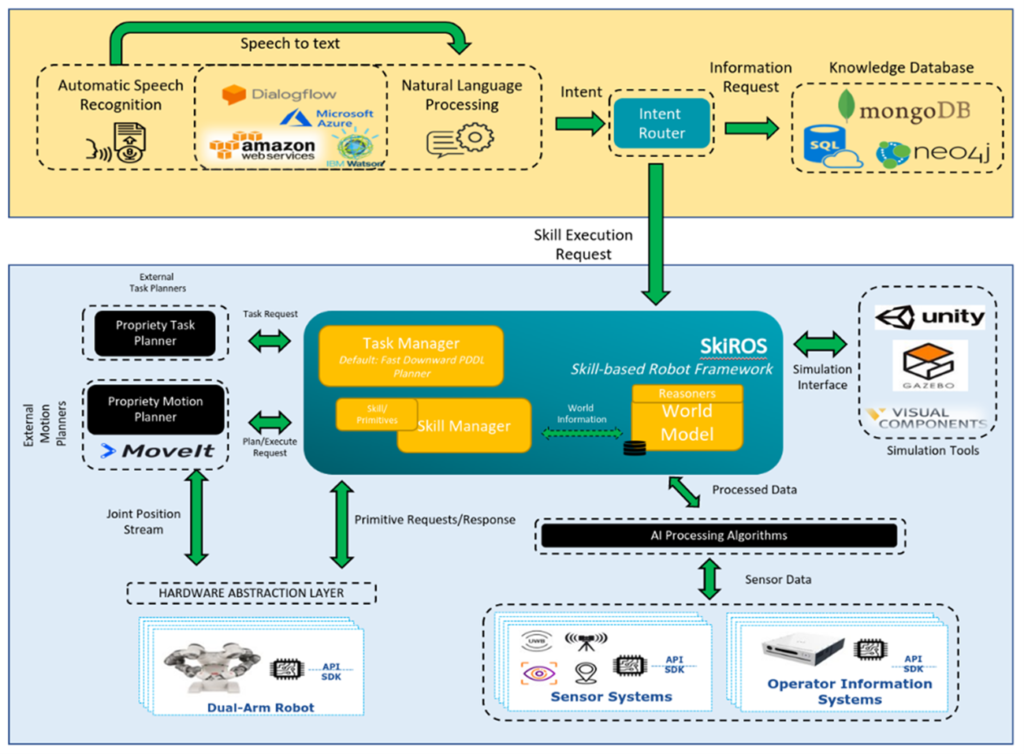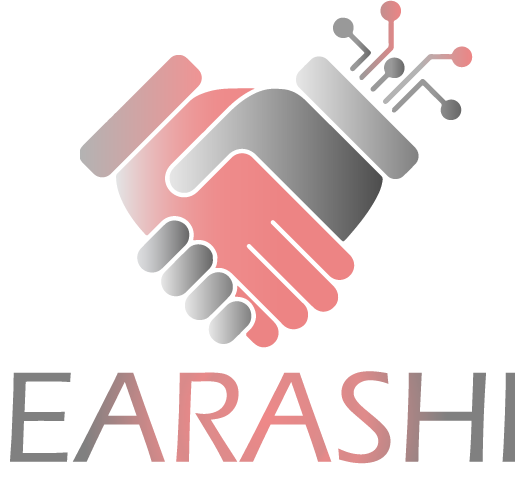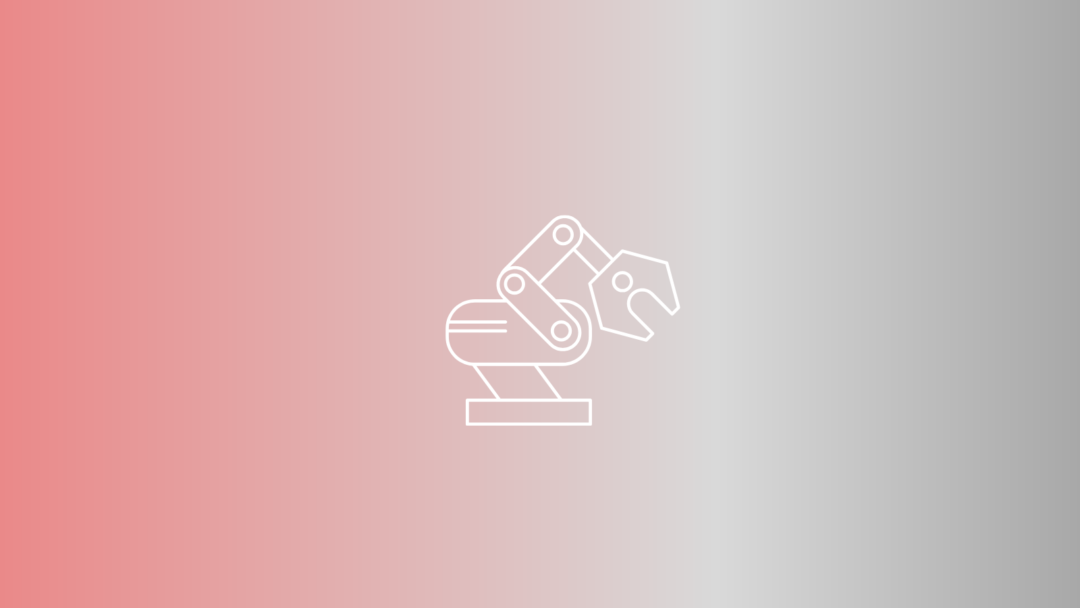Short description
An AI-enabled human-centered architecture that allows operators to be supported in their work by skill-based programmed robots or cobots, smart sensing systems and intuitive human interaction tools.
Context
Flanders Make has developed an extension to the SkiROS2 Skill-based robot control platform, to create a more generic human-centered operator support architecture for assembly work cells. Therefore, multiple components related to human-machine interaction have been added such as a smart sensor system, work instruction platforms and a central knowledge base. To make the human-machine interaction more intuitive, AI components were added that enable the operator to control the system using natural language, to demand quality checks of his work or to request task-related knowledge or support.
Features
The architecture is centered around the SkiROS2 robotics framework and therefore inherits all the features related to skill-based programming: task planning, motion planning, skill libraries, etc. Apart from this, a centralized knowledge base is added to contain all the relevant information about the assembly work cell. The added speech interface recognizes intents from natural language and routes these intents to the active components in the framework: this could be skill/task request to the robot, a need for a digital instruction or a general request for information to the knowledge base. In the near future, this will be extended with an AI-based vision component that keeps track of the assembly state and can perform (visual) quality checks on demand. The framework is continuously improved to optimize existing functionalities and integrate other components that are relevant for operators.
Difference with existing solutions
There is no single framework that combines all these functionalities in one solution. Integrators can develop custom tools to connect components, but it will be more expensive and difficult to maintain. As this framework is hardware agnostic, companies can easily interface existing infrastructure. Operators without programming skills are able to retrain the system for a new situation, using reusable skills.
Who might be interested / Typical use case
This framework is highly relevant for companies that deal with complex manual work (e.g. assembly, packaging) and a large or changing product portfolio or workforce. This framework will result in increased quality and productivity, by providing better support (on demand).
Hardware requirements
The specified framework is modular and hardware agnostic. In its simplest form, only a computer that can run ROS2 is needed to host the software and the knowledge base. Depending on the needs of the customer, different robots, cobots, sensors or information systems can be plugged into the framework. If natural language interaction is desired, a microphone should be connected.

Additional resources
Contact
- earashi@flandersmake.be

